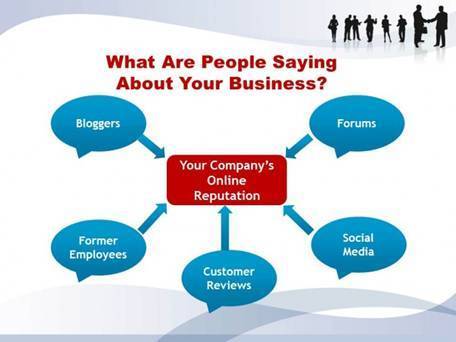人人求好评 欢迎来到“声誉经济”时代
中国日报网 2014-12-10 09:35

网上购物时,大家一般都会先看看之前的买家评价;出去吃饭时,也会上点评类网站看看店家的饭菜有什么特色,或者服务是否周到。据说,有些公司在招聘时,还会先上网搜一下应聘人员的微博,作为是否录用的参考。不管你承不承认,我们已经进入了“声誉经济”时代。

Imagine a world where banks take into account your online reputation alongside traditional credit ratings to determine your loan; where headhunters hire you based on the expertise you've demonstrated on online forums such as Quora; where your feedback on eBay can be used to get a head-start selling on Etsy; where traditional business cards are replaced by profiles of your digital trustworthiness, updated in real-time. Where reputation data becomes the window into how we behave, what motivates us, how our peers view us and ultimately whether we can or can't be trusted.
想象有这样一个世界:银行决定你的贷款额度时除了考虑你的信用等级还会参考你的网络声誉,猎头根据你在网络论坛上的专业技能展示决定雇佣你,你在eBay上的反馈评价可以帮你在Etsy网站卖产品时更有优势,传统的名片正被实时更新的在线个人信用档案所取代。在线声誉数据成为反应我们的行为、做事的动力、同伴对我们的看法以及我们是否可信的一个窗口。
Welcome to the reputation economy, where your online history becomes more powerful than your credit history.
欢迎来到声誉经济,在这里,你的网络历史比信用历史更有影响力。
The value of reputation is not a new concept to the online world: think star ratings on Amazon, PowerSellers on eBay or reputation levels on games such as World of Warcraft. The difference today is our ability to capture data from across an array of digital services. With every trade we make, comment we leave, person we "friend", spammer we flag or badge we earn, we leave a trail of how well we can or can't be trusted.
在网络世界里,声誉的价值已不是什么新事物:想想亚马逊上的星级评价、eBay上的超级卖家或者游戏魔兽世界里的声誉等级,所不同的只是如今我们从各类数字服务中获取这些数据的能力。我们完成的每个交易,留的每个评价,加的每个好友,标记的每封垃圾邮件或者赢得的每个勋章,都会构成我们能否被信任的轨迹。
(中国日报网英语点津 Helen)

















 英语点津微信
英语点津微信 双语小程序
双语小程序